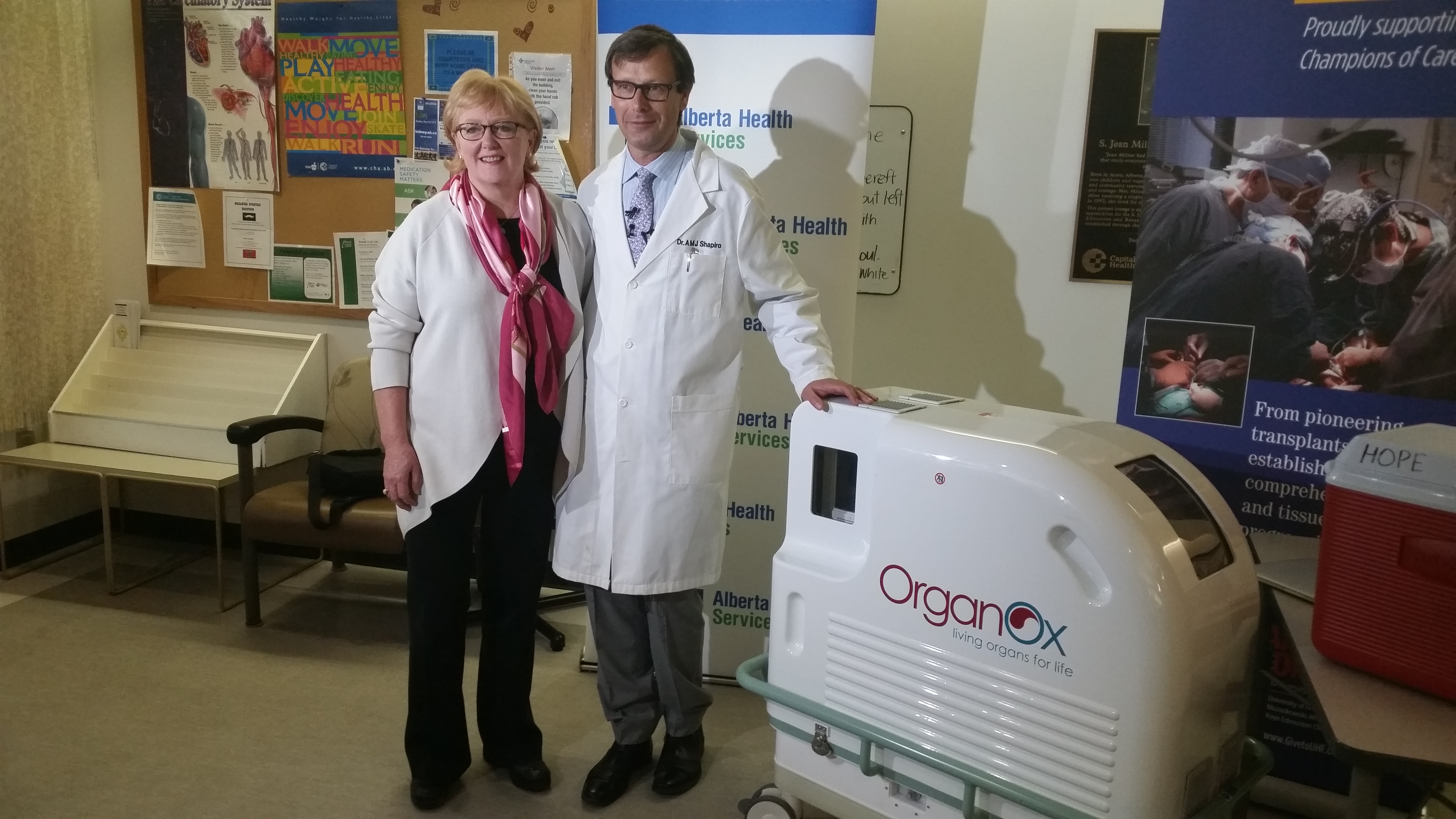
Lori West and James Shapiro stand next to a portable ex-vivo profusion device, called Metra.
A groundbreaking liver surgery has been performed, by the Faculty of Medicine's professor of surgery James Shapiro, thanks to a partnership between the Faculty of Medicine & Dentistry's Alberta Transplant Institute (ATI) and Alberta Health Services.
Wilfred Siu recently received a new liver that had been connected to a portable ex-vivo profusion device, called Metra, which kept the donor organ warm outside of the body, with blood circulating through it. Metra can keep donor livers viable for transplant up to 24 hours prior to surgery. The Metra device is only available in one other location in North America, Toronto.
"Donor organs degrade and becomes less viable for transplant the longer they are on ice as they need oxygen and nutrients," says Shapiro, director of the Clinical Islet and Living Donor Liver Transplant programs at Alberta Health Services and professor of Surgery at the University of Alberta.
"Now, once the organ is removed from the donor, tubes are connected to the main blood vessels and the liver is maintained as if it is still in the body, supplied with oxygen, nutrients and kept at body temperature. The liver continues to function and produce bile," he adds.
"Transplanting a fresh, warm liver means we should expect better outcomes for patients, and the opportunity to repair donor livers outside of the body before transplant could provide our program more viable donor organs for people needing them. I am particularly excited about this technology which could save lives by enabling us to perform more transplants more safely."
Shapiro is co-leading the national trial in Canada, which is part of an international, industry-led research trial that aims to improve outcomes for liver transplant recipients.
The Alberta Transplant Institute contributed $150,000 to help launch the warm-liver transplant program at the University of Alberta Hospital (UAH). Now, surgeons at UAH have become the first transplant team in North America to use a leading-edge technology that extends the viability of donor livers prior to transplantation.
"The Alberta Transplant Institute, together with the Canadian National Transplant Research Program, are thrilled to support use of this transformative emerging technology for transplantation," says Lori West, director of the Alberta Transplant Institute and the Canadian National Transplant Research Program.
"Only through investment in research initiatives such as this will advances continue to be made in transplant therapies. This will have immediate impact on the outlook for the hundreds of Albertans, and thousands of Canadians, awaiting donor organs, for whom transplantation provides a second chance for a healthy life. Additionally, for families whose loved ones have donated organs, this is a dramatic step forward in ensuring that every donated organ can be transplanted successfully, making the very most of their gift of life."
Traditionally, livers are kept in an icebox for up to eight to 10 hours to allow for transportation and for the recipient to be prepared for surgery.
Siu, 70, is grateful this technology and expertise exists in the province. He was first diagnosed with liver cancer in 2010. He received multiple treatments and surgeries prior to being listed for transplant more than a year ago.
"I was surprised when I finally got the call that an organ was available for me," says Siu. "I wasn't sure what to expect, but I am happy that this technology is in Edmonton and it was available for my transplant."